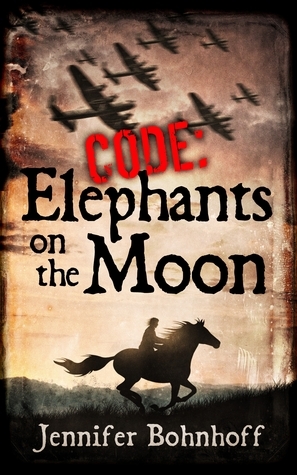What do you think?
Rate this book


143 pages, Kindle Edition
First published June 12, 2014
And yes, I know what you're thinking: 'If it was fantastic, why on earth only four stars?'
I have a confession to make. During the beginning, I wasn't extremely into it. The first few chapters, my brain was unintentionally comparing this book to two other books about members of the French Resistance entitled "For Freedom" and "Violins of Autumn." Because I did reread the latter rather recently, I was already in the mood for an action-packed spy story that thrilled from the first moment... But that wasn't this book. No, this book took a moment to build. Near the beginning, it was fairly easy to see what was coming Combine this with a plot that was a bit slower moving than most novels about spies and resistance members, and you'll be at the conclusion I was at around chapter ten. But guess what?
I was wrong.
Yep, you read that right. I was wrong. Around chapter 12/13, the plot became more complex, started building up and layering together the characters and elements of the story that were just touched on earlier. Yes, there were some things that you predicted a few chapters before they actually happened, but the way the story came together made me genuinely enjoy this.
Also, although I don't really care for him as a person, I do really enjoy René as a character. I don't want to like him because he's kind of a sexist, Nazi pig. So I don't like him... Yet I do like him, because he was kind to our protagonist as has been since they were younger, so I know that it wasn't entirely a façade intending to lure Eponine into his messed up view of a relationship.
(And if I may take a moment to acknowledge this, the protagonist is named Eponine. I don't know if the author did this intending to have a Les Mis reference, but I honestly don't care. Our lovely lady from Les Mis is one of my favorite characters of all time--a young French girl searching for identity and confirmation of love even in the midst of social turmoil--and I can definitely see the connection between these two Eponines).
The Sergeant made me happy, especially in the epilogue. I think this book is a good example of the fact that there are good and bad people on both sides of conflict. Honestly, other than the stereotypical mean schoolyard girls, I appreciated the whole cast of characters.
Finally, kudos for voicing the thoughts that many young people (even without being in a war-zone) feel: 'I am all alone,' 'I don't know who I am,' 'I feel bad about feeling bad for myself,' 'Why does God allow things like war?,' and 'How can I continue to give more when I've already given up all of myself?'
Note: I think in cases where you acquire a book for free and agree to give a review in exchange, it's customary to note this somewhere in the review, so here's my little mention.